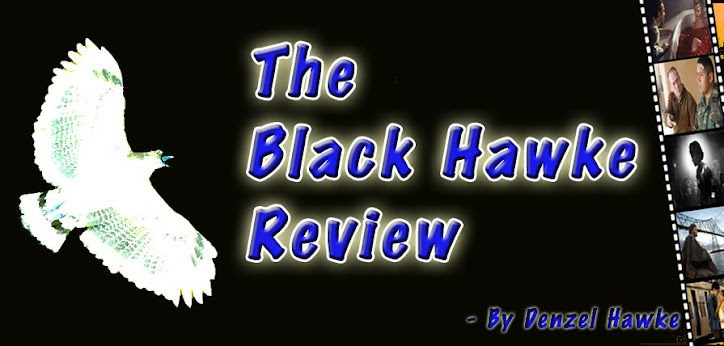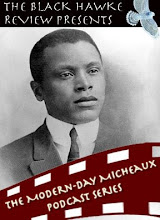JAI HO!
Jamal, a lowly slumdog in India’s caste system, is one question away from winning twenty million dollars. Now how does one with no formal education kick ass on a game show that tests intellect? The show creators ask the same thing and deducts, he had to have cheated. Now, in jail, Jamal has to reveal the story of his life (coincidently containing all the answers), before being tortured to death, and it involves the chase of the lovely Latika.
Preposterous? Maybe, yes? But if that stops you from seeing this movie, then you’re seriously missing out. The ultimate rag-to-riches story if there ever was one. Jamal grows up on the impoverished and dangerous streets of Mumbia. The grotesque violence and inhumane treatment of the kids in these slums is hard to watch, which makes the intertwined plot of Jamal winning the game show that more gratifying. But money is not what Jamal seeks. He seeks Latika, the girl he’s spent his entire life protecting and saving, only to have her ripped away from him time-after-time. Friedo Pinto, the Bollywood actress who plays Latika, may now certifiably be the most gorgeous woman on earth. A brief glimpse of her angelic smile from the scaffold of a train station is absolutely heartwarming.
The actor’s performance’s aren’t amazing, but everything else the film does right makes up for it. How the sights and sounds of Mumbia, one of the world’s most impoverished cities to one of the world’s richest and 4th largest agglomeration, makes the scenery come to life. How the score is both thrill-seeking and dreamy. How the cinematography brings out the richness of this Indian culture.

CULTURAL INTROSPECTION:
There are too many good things about this movie, both on screen and behind the scenes. One, Slumdog Millionaire sheds light on the slums of burgeoning of Mumbia. How a city so richly developed, still has most of it’s people living in extreme harsh conditions. Outrage ensued, when it was learned the kids in the movie were still living in the slums, despite the 100 million-dollars the movie made on only a 15 million-dollar budget. The Indian government, stepped in, and now provides funds for housing of all the child actor’s family. Slumdog Millionaire, changing the world one impoverished kid at a time.
Another miracle of Slumdog is how it almost went straight to DVD. Due to the tough economic times, the film studio division that owned the rights to Slumdog Millinoaire, Warner Independent Pictures, had to shut down. The film was transferred to Warner Brothers Pictures who doubted the potential commercial success of Slumdog (i.e. no big Hollywood names, no explosions = no money). Before the official decision to send it straight to DVD was made, Fox Searchlight stepped to buy 50% of it. Now Warner Brother’s could release the movie and not suffer a huge financial loss when it flopped. Since, the film grossed over 175 million worldwide.
This story goes a far to show how a lot of talent in this world is hidden. If the movie had gone to DVD, millions would never have watched it. It never would have won Best Picture. Dev Patel and Freida Pinto would have never become American movie stars. The film still would have been what it is today. Just hardly anyone would have discovered it. Makes me think how many other brilliant jewels are hiding under rocks, and how we might need to start digging a little bit deeper to find them.
The BLACK PERSPECTIVE:
There was a joke on The Chappell Show were Paul Mooney criticized Hollywood for starring white men in culturally diverse films. The Last Samurai which starred Tom Cruise. Seven Years in Tibet which starred Brad Pitt. Even The Blood Diamond which starred Leonardo Dicaprio. He suggested making a movie called “The Nigger” and having it star Tom Hanks.
Slumdog Millionaire is a cultural milestone for America. Hopefully Hollywood will get the message and start making their cultural movies more authentic by taking out the big-named white guy. Maybe we’ll get more cultural films in general. Audience will react to a great story no matter who’s in it or what culture it shows. With that in mind, it’s time to start shedding more light on other regions of the world, and expanding the minds of The American People.
EXTRAS:
*The movie was nominated for ten academy awards in nine categories. It won eight, including Picture, Director, Cinematography, Song, Score, Adapted Screenplay, Sound Mixing, and Editing.
*Screenwriter Simon Beaufoy was also nominated for an Oscar in 1998 for Writing The Full Monty.
*Sound Editor Resul Pookutty is the first Indian ever to win an Oscar.
*A.R. Rahman was nominated for three Oscars and won 2 for Best Song and Best Score. He shared a nomination on the song that didn’t win (O’Saya) with M.I.A.
*The dance sequence at the end, in which many panned as being out-of-place and folksy, is a tribute to the Bollywood culture. Ironically Bollywood complained that there weren’t enough dance sequences.
*The Pussycat Dolls recorded an English version of "Jai Ho", the Oscar winning song. Surprisingly, it's not that bad.
Jamal, a lowly slumdog in India’s caste system, is one question away from winning twenty million dollars. Now how does one with no formal education kick ass on a game show that tests intellect? The show creators ask the same thing and deducts, he had to have cheated. Now, in jail, Jamal has to reveal the story of his life (coincidently containing all the answers), before being tortured to death, and it involves the chase of the lovely Latika.
Preposterous? Maybe, yes? But if that stops you from seeing this movie, then you’re seriously missing out. The ultimate rag-to-riches story if there ever was one. Jamal grows up on the impoverished and dangerous streets of Mumbia. The grotesque violence and inhumane treatment of the kids in these slums is hard to watch, which makes the intertwined plot of Jamal winning the game show that more gratifying. But money is not what Jamal seeks. He seeks Latika, the girl he’s spent his entire life protecting and saving, only to have her ripped away from him time-after-time. Friedo Pinto, the Bollywood actress who plays Latika, may now certifiably be the most gorgeous woman on earth. A brief glimpse of her angelic smile from the scaffold of a train station is absolutely heartwarming.
The actor’s performance’s aren’t amazing, but everything else the film does right makes up for it. How the sights and sounds of Mumbia, one of the world’s most impoverished cities to one of the world’s richest and 4th largest agglomeration, makes the scenery come to life. How the score is both thrill-seeking and dreamy. How the cinematography brings out the richness of this Indian culture.

CULTURAL INTROSPECTION:
There are too many good things about this movie, both on screen and behind the scenes. One, Slumdog Millionaire sheds light on the slums of burgeoning of Mumbia. How a city so richly developed, still has most of it’s people living in extreme harsh conditions. Outrage ensued, when it was learned the kids in the movie were still living in the slums, despite the 100 million-dollars the movie made on only a 15 million-dollar budget. The Indian government, stepped in, and now provides funds for housing of all the child actor’s family. Slumdog Millionaire, changing the world one impoverished kid at a time.
Another miracle of Slumdog is how it almost went straight to DVD. Due to the tough economic times, the film studio division that owned the rights to Slumdog Millinoaire, Warner Independent Pictures, had to shut down. The film was transferred to Warner Brothers Pictures who doubted the potential commercial success of Slumdog (i.e. no big Hollywood names, no explosions = no money). Before the official decision to send it straight to DVD was made, Fox Searchlight stepped to buy 50% of it. Now Warner Brother’s could release the movie and not suffer a huge financial loss when it flopped. Since, the film grossed over 175 million worldwide.
This story goes a far to show how a lot of talent in this world is hidden. If the movie had gone to DVD, millions would never have watched it. It never would have won Best Picture. Dev Patel and Freida Pinto would have never become American movie stars. The film still would have been what it is today. Just hardly anyone would have discovered it. Makes me think how many other brilliant jewels are hiding under rocks, and how we might need to start digging a little bit deeper to find them.
The BLACK PERSPECTIVE:
There was a joke on The Chappell Show were Paul Mooney criticized Hollywood for starring white men in culturally diverse films. The Last Samurai which starred Tom Cruise. Seven Years in Tibet which starred Brad Pitt. Even The Blood Diamond which starred Leonardo Dicaprio. He suggested making a movie called “The Nigger” and having it star Tom Hanks.
Slumdog Millionaire is a cultural milestone for America. Hopefully Hollywood will get the message and start making their cultural movies more authentic by taking out the big-named white guy. Maybe we’ll get more cultural films in general. Audience will react to a great story no matter who’s in it or what culture it shows. With that in mind, it’s time to start shedding more light on other regions of the world, and expanding the minds of The American People.
EXTRAS:
*The movie was nominated for ten academy awards in nine categories. It won eight, including Picture, Director, Cinematography, Song, Score, Adapted Screenplay, Sound Mixing, and Editing.
*Screenwriter Simon Beaufoy was also nominated for an Oscar in 1998 for Writing The Full Monty.
*Sound Editor Resul Pookutty is the first Indian ever to win an Oscar.
*A.R. Rahman was nominated for three Oscars and won 2 for Best Song and Best Score. He shared a nomination on the song that didn’t win (O’Saya) with M.I.A.
*The dance sequence at the end, in which many panned as being out-of-place and folksy, is a tribute to the Bollywood culture. Ironically Bollywood complained that there weren’t enough dance sequences.
*The Pussycat Dolls recorded an English version of "Jai Ho", the Oscar winning song. Surprisingly, it's not that bad.







 = 3 Black/Puerto Rican Fists
= 3 Black/Puerto Rican Fists









